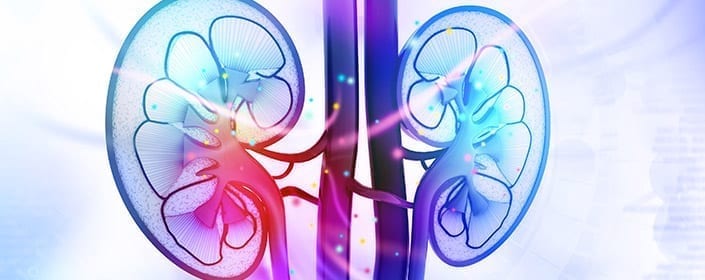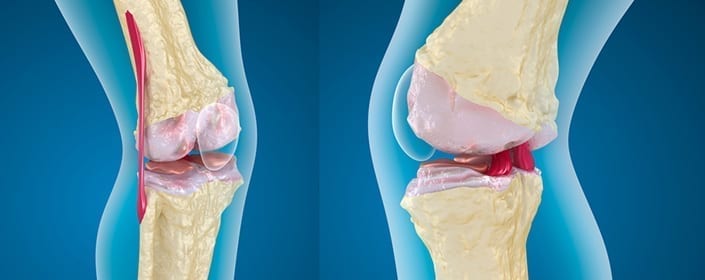
by admin | Nov 30, 2016 | Studies, Kidney Disease
Dr. Xun Zhu and colleagues in Rochestor, Minnesota recently reviewed the medical research that suggests that stem cells can be useful for treating kidney disease. In their review, they focused on the value of mesenchymal stem cells (MSCs), which are a type of stem cell that can turn into a number of different cell types, including bone cells, muscle cells, fat cells, and cartilage cells. MSCs have become a popular type of stem cell for therapeutic purposes for several reasons. First, they can be collected in large numbers with relative ease from places like fat tissue or bone marrow. Second, they fight inflammation, thereby reducing problematic symptoms associated with a number of diseases and conditions. Finally, MSCs seem to work along a number of different pathways that contribute to disease.
In their review, Zhu and colleagues discussed how MSCs are promising specifically within the realm of kidney disease. Both acute kidney ischemia and chronic ischemic kidney disease may be improved with MSCs and currently lack other highly effective treatment options. In addition to their anti-inflammatory properties, which can both protect and repair the kidney, MSCs also seem able to repair the kidney by releasing chemicals called cytokines. Cytokines are cells that are normally secreted by the immune system and impact other cells in ways that are important for healthy functioning.
Pre-clinical research into how MSCs may be used to address kidney disease has been promising. For instance, in a study where rat kidney transplants were being rejected by the rats’ immune systems, MSCs helped reduce the inflammation caused by the immune systems’ reactions. Similarly, in a phase II clinical trial, MSCs reduced the incidence of kidney transplant rejection in human patients. In a separate phase I clinical trial, patients who had undergone heart surgery were given injections of MSCs derived from bone marrow and as a result, were 20% less likely to suffer from acute kidney ischemia postoperatively. Further, the length of hospital stays and the readmissions rates were reduced in this group by 40%.
Researchers have also begun to consider the impact of MSCs on diabetic nephropathy, a progressive disease of the kidney that can occur in diabetes patients. Their pre-clinical studies have shown that MSCs can minimize diabetic nephropathy in rats by lowering inflammation.
The work compiled by Zhu and colleagues demonstrates that significant value that MSCs bring to treating several forms of kidney disease. Going forward, researchers will aim to determine the best route of MSC delivery for each type of disease and how long the effect of MSCs can last.
To learn more about how stem cells could help those with Diabetic kidney disease, click here.
Reference
Zhu, X.Y., Lerhman, A., & Lerman, L.O. (2013). Concise review: Mesenchymal stem cell treatment for ischemic kidney dissease. Stem Cells, 31, 1731-1736.

by admin | Nov 7, 2016 | Studies
A group of Japanese researchers have just released a study that advances our understanding of how we can use a specific type of stem cells to help patients recover from cartilage damage. This group worked with a specific type of stem cell called bone marrow-derived mesenchymal stem cells (BMSCs) because these cells confer a number of advantages over other types of stem cells that have been used to repair cartilage. Though one particular type of stem cells, called autologous chondrocytes, have been implanted over 20,000 times for therapeutic reasons, these cells are associated with long and arduous surgeries because it is difficult to harvest the required cartilage and periosteum. Another type of stem cell, referred to as suspended cultured chondrocytes, on the other hand, have the potential to result in leakage, with an uneven distribution of cells throughout the site.
Unlike these other stem cell options, BMSCs can be easily harvest through methods that are relatively minimally invasive. The team in Japan also believes that BMSC implantation is safe, as they observed no tumors or infections in the more than 6-year follow-up period of their study. Nonetheless, previous work with BMSC showed that the cells did not lead to the generation of cartilage that was sufficient to replace old cartilage. To overcome that problem, these scientists decided to explore ways to provide large numbers of cells over a short period of time. Because BMSC from humans lose their ability to differentiate into different types of cells after having traveled long distances, the researchers believed that injecting cells directly into the injury site would improve the chances that good cartilage would develop. In addition, adding a specific agent, called, fibroblast growth factor (FGF-2) could help the cells proliferate.
In this study, the researchers tested these ideas to help determine the ideal conditions for transplanting BMSCs for cartilage repair. They found that their method of transplantation led to better cartilage development than was seen in controls, with rats receiving BMSC treated with FGF-2 directly into the area with cartilage injury having higher Wakitani scores. Wakitani scores are used to assess the regeneration of cartilage tissue and how well the new tissue is integrated into the surrounding tissue.
Given that many cartilage defects do not tend to repair themselves and can often lead to osteoarthritis, it is important to find effective ways to regenerate cartilage. There are a number of limitations to the current therapies, but this study demonstrates how our tools for cartilage repair are progressing and the promise of stem cells to help rebuild defective cartilage.
Learn more about using stem cells for orthopedics here.
Reference
Itokazu et al. (2016). Transplantation of scaffold-free cartilage-like cell-sheets made from human bone marrow mesenchymal stem cells for cartilage repair. Cartilage, 7(4), 361-372.



 St. Petersburg, Florida
St. Petersburg, Florida
